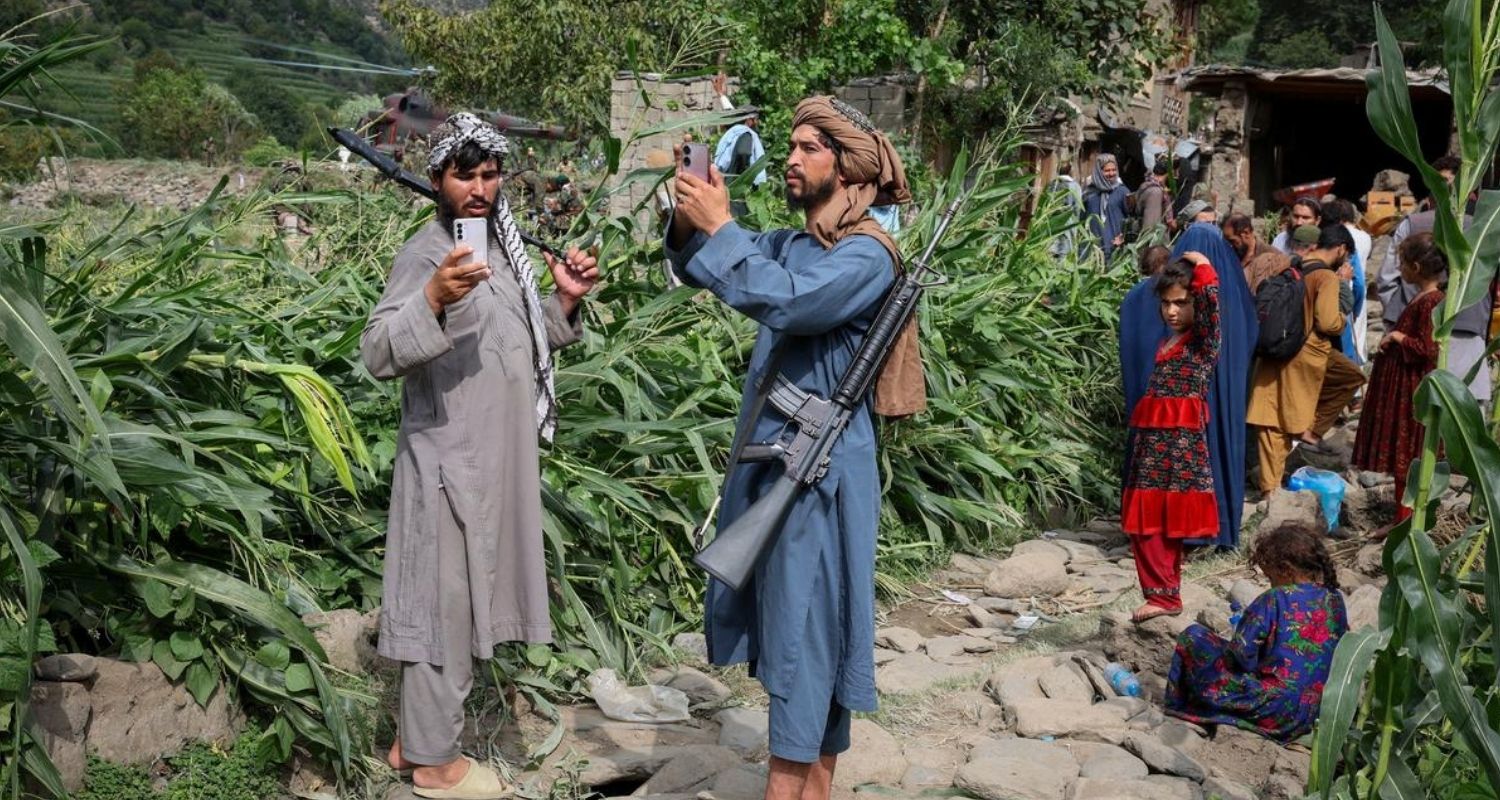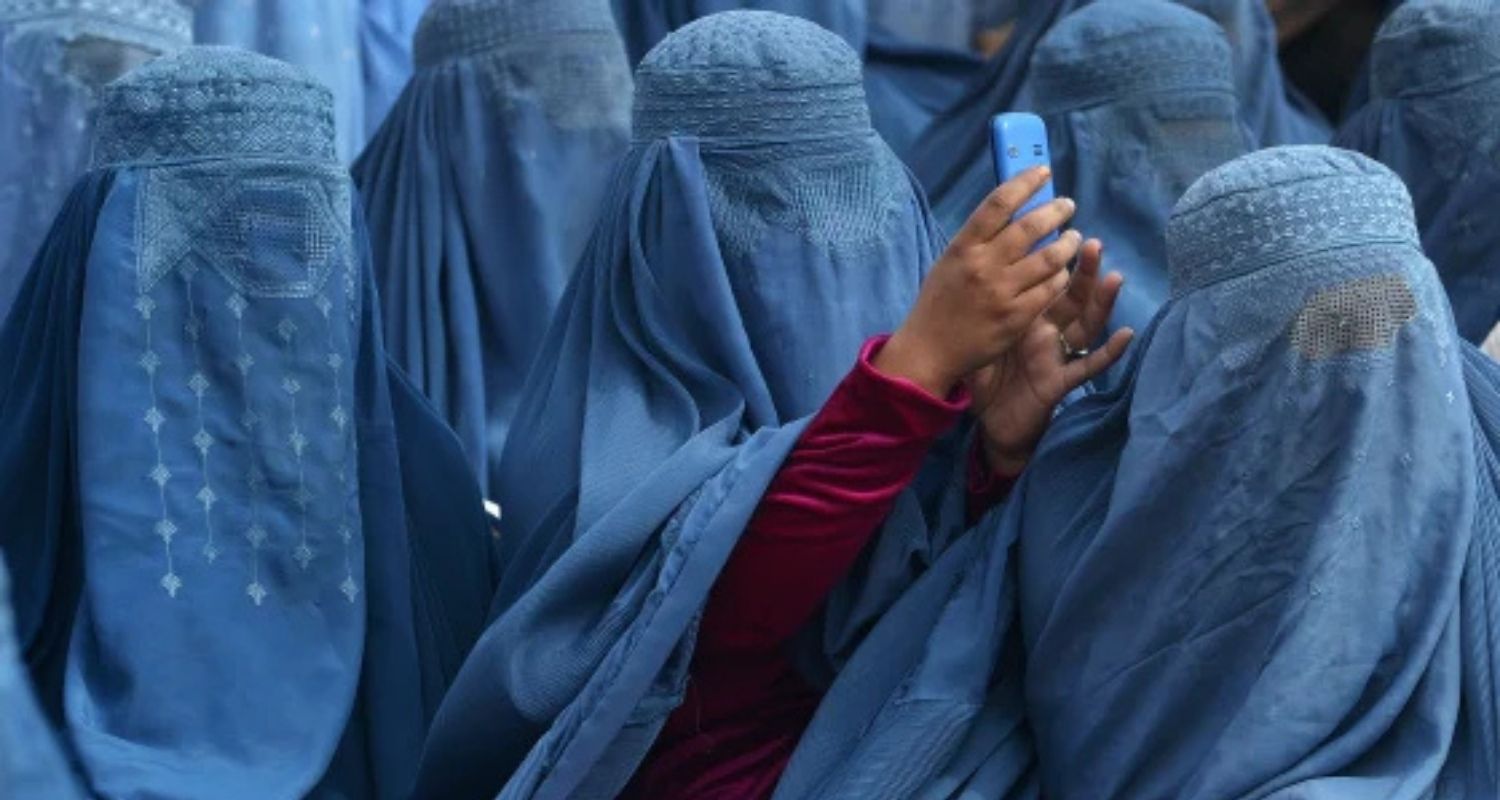The Taliban administration in Afghanistan has imposed a sweeping internet ban across large parts of the northern region, citing the need "to prevent immoral activities", officials said.
This marks the first such initiative of the Taliban government since coming back to power in 2021 following the withdrawal of the US-backed government from Kabul. The internet ban would see restrictions in at least five provinces, including Kunduz, Badakhshan, Baghlan, Takhar, and Balkh. The blanket ban would affect a large population in the northern region of Afghanistan.
Millions of residents are likely to be affected, including those in urban centres and rural areas. These restrictions are expected to cause massive disruptions in daily life and affect online businesses, finance transactions, and communications.

The ban has primarily targeted the internet connections delivered via fibre optic cables, mostly used for access to high-speed broadband in offices, commercial centres and homes, the provincial officials said.
Mobile data services, however, will remain operational, providing a limited alternative for internet access. Despite this concession, the fibre optic shutdown has already severed connectivity for countless users, leaving households, workplaces, and educational institutions without reliable online services.
A joint statement from the affected provinces confirmed that “all connections have been cut off,” emphasising, “This measure has been taken to prevent immoral activities,” and assuring the public that provisions would be made for essential needs.
Though the reference to “immoral activities” is disturbing because Afghanistan lives under one of the strict laws enforced by the Taliban government.
The term was vaguely used to justify the high-speed internet ban. Afghanistan is one of the poorest countries in the world, and shutting down the internet would probably hamper the commercial activities in the country. The Taliban’s decision to implement this ban comes amid its broader campaign to enforce a strict interpretation of Sharia law, which has increasingly permeated digital spaces.

Last year, the Taliban government also formalised and applied an extensive code of conduct regulating personal morality, which demands women to cover up their faces in public, while men are supposed to keep their mandatory beards.
Additionally, there is a widespread ban on all sorts of music while driving or in public. Afghanistan’s society since the 1990s has transformed into a conservative society.
US Ambassador to Afghanistan Zalmay Khalilzad, one of the main critics of the Taliban government and mediator between the US-Taliban talks, described the ban as “absurd,” arguing that targeted solutions exist.
“If pornography is really the concern, as in many Islamic countries, it can easily be filtered. Many countries in the Islamic world do exactly that,” he said, pointing to content-blocking technologies employed by nations such as Saudi Arabia and the United Arab Emirates.
Also Read: Pakistan, Afghanistan resume JCC talks in Kabul
Pornography is a major concern not only in Muslim nations but also in the majority of other nations as well. According to the UN, it is now listed among the major addictions, besides others. Human rights organisations and numerous foreign governments have long condemned the Taliban’s restrictions on women and freedom of expression as violations of international norms.
The internet ban exacerbates these concerns, as it not only curtails access to information and global connectivity but also isolates vulnerable populations, including women and girls who rely on online platforms for education, advocacy, and support networks. Rights groups have warned that such measures could further entrench gender apartheid and stifle dissent in a country already grappling with economic collapse and humanitarian crises.
Also Read: Pakistan, China, Afghanistan agree to extend CPEC to Kabul




